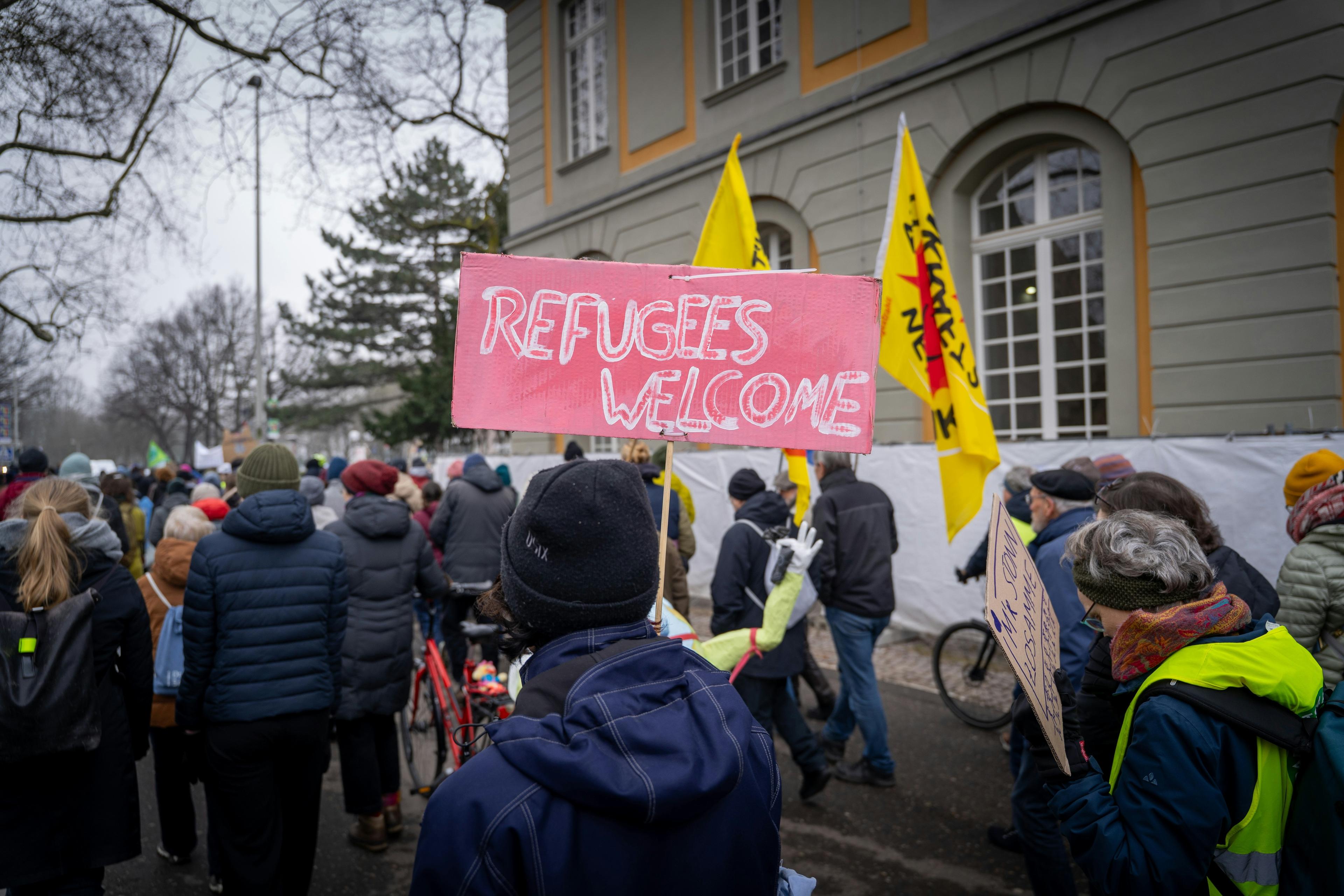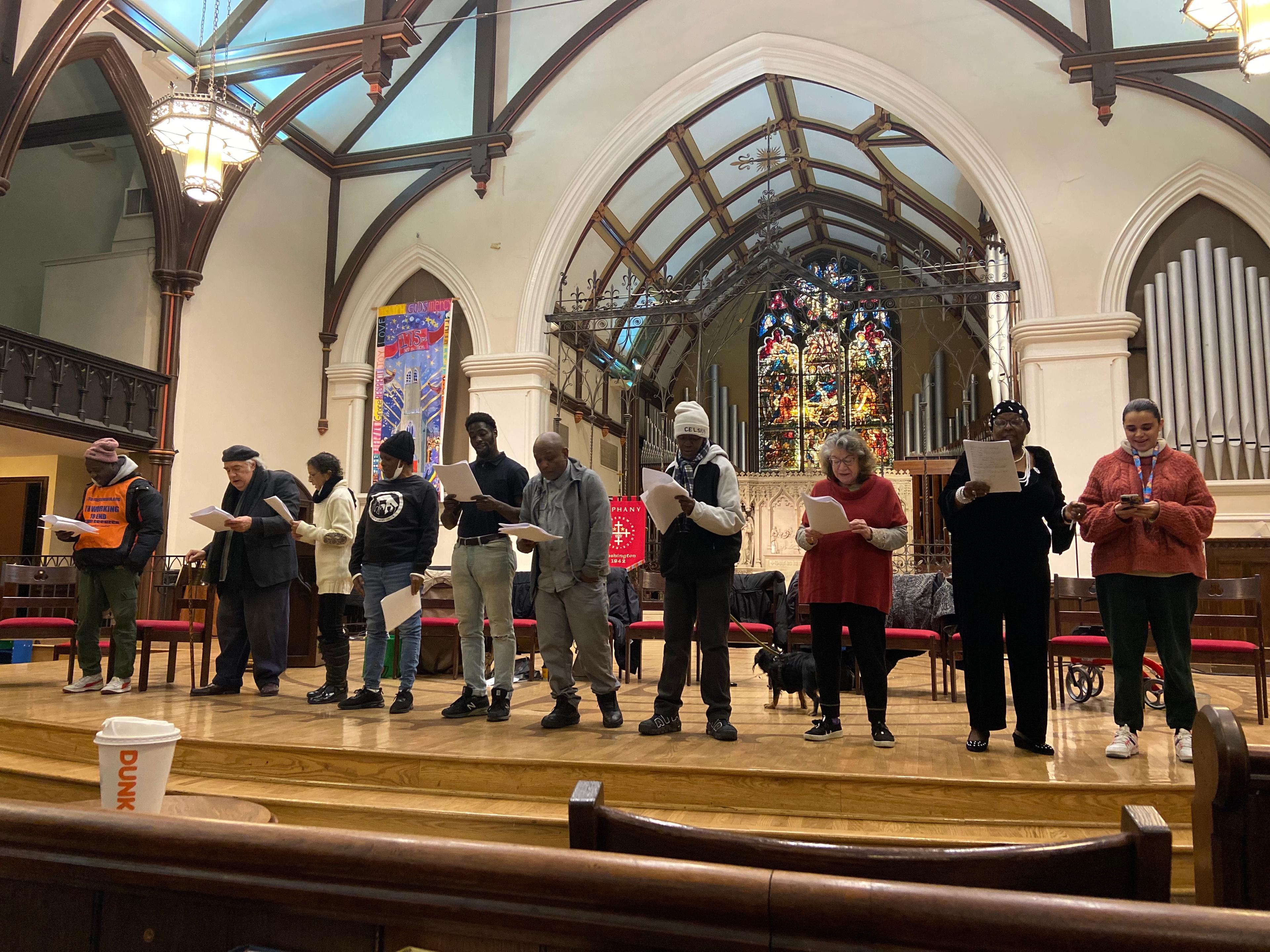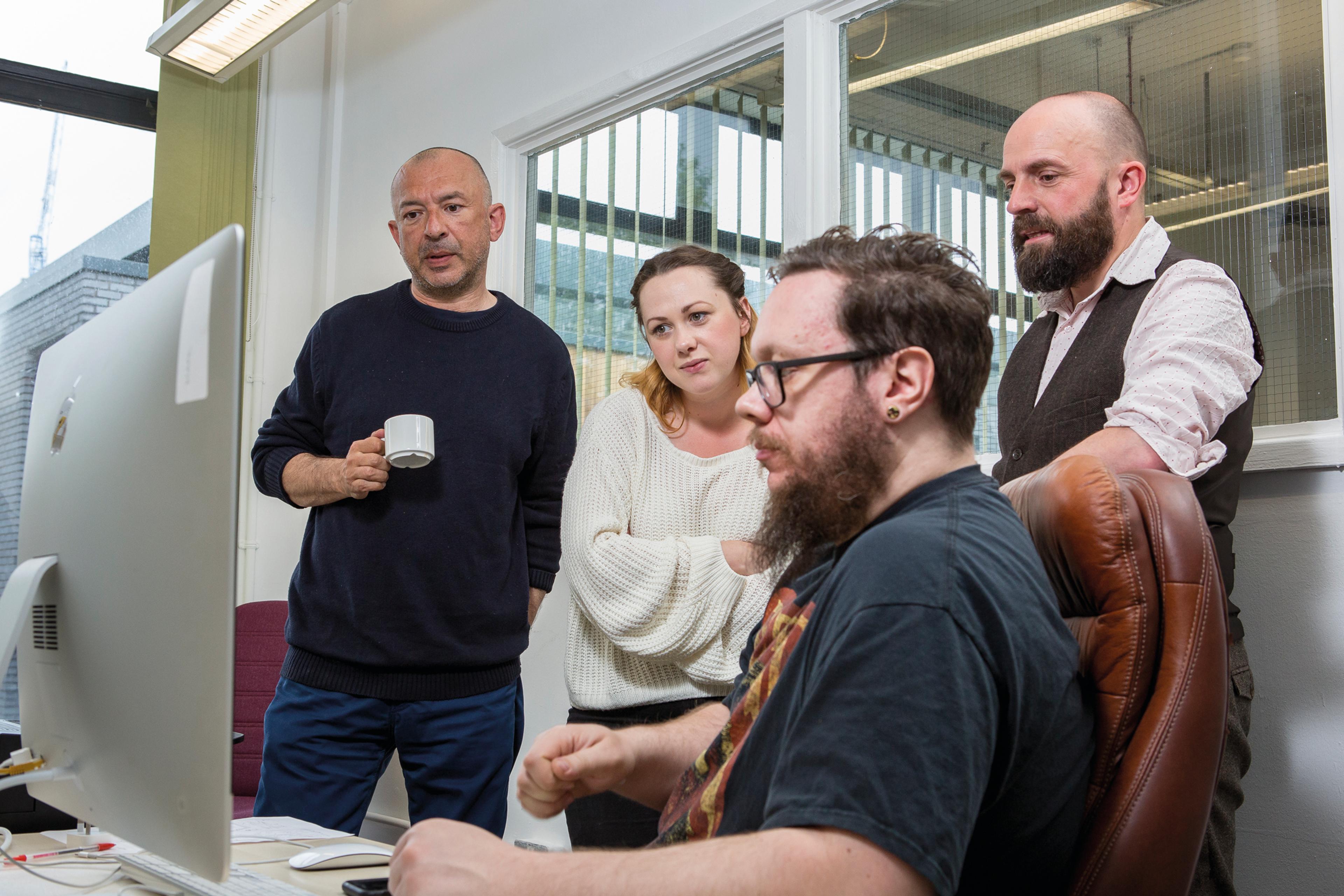“Mass accommodation exacerbates the problem”: Ingo Schäfer on refugees’ mental health

Benjamin Buchholz
By Benjamin Buchholz
- Street paper news

Hinz&Kunzt: Ten years ago, we were still talking quite differently about refugees. In 2015, Angela Merkel justified her policies by saying that refugees “often have to overcome situations or endure fears that would probably break us”. How does being a refugee affect the psyche?
Ingo Schäfer: Refugees often carry ongoing trauma from their experiences of war or persecution. As they flee, they frequently experience violence or their lives are at risk in other ways. This can lead to mental health conditions such as post-traumatic stress disorder (PTSD).
What symptoms does that cause in those affected?
It’s characterised by the reliving of traumatic experiences in the form of flashbacks, intrusive thoughts or nightmares.
About every third refugee exhibits symptoms of PTSD or depression. By their own account, psychosocial care centres such as yours cover just about three percent of necessary care nationwide.
There are way too few advisory services that help to identify the stress that people are under and provide initial support programmes. It’s even worse in the case of psychotherapy, to which only a very small number of refugees have access. There are also considerable hurdles when it comes to psychiatric care, for example language barriers. In other German states, the Asylum Seekers’ Benefits Act is also a hurdle.
The Act stipulates that during the first three years, refugees receive only acute care. Germany’s “traffic light” coalition (Social Democrats, Free Democrats and Greens) recently tightened this rule even more. Before that, refugees were able to get approval for psychotherapy after 18 months, for example.
In Hamburg, however, there is a political willingness to invest in psychosocial care for refugees. That’s not the case to the same degree in all German states.
So that means that in Hamburg, the proportion of refugees with mental illnesses who receive appropriate care is greater than three percent?
Based on 40,000 refugees in public accommodation in Hamburg and 30 percent with mental illnesses, that makes about 12,000 people in need of care. At Centra, we can provide about 300 people with consultations and 100 with psychotherapy each year. It’s about three percent for us, too.
So in spite of political willingness, the result is the same.
The difference is that in other places, it’s now going to get worse. Federal funding for psychosocial centres has been cut. In Hamburg, social security funding will allow us to remain stable at this level.
In January, the Senate presented its new mental health plan, announcing many improvements. However, it doesn’t mention refugees.
Not explicitly, that’s true. But I assume that this perspective will be seen in the planned projects. Everyone is now aware of the importance of care for refugees and migrants. But the topic is not at the forefront of the State Mental Health Plan, and that’s a shame.
According to studies, many refugees also find it challenging to be accommodated in central initial reception centres with little privacy. What effect does it have on the psyche when Hamburg is forced to house people in tents or exhibition halls, or keep them in initial reception centres for much longer than planned?
When you’re already under pressure, mass accommodation with little privacy exacerbates the problem. But also the sometimes protracted asylum process, along with long-term uncertainty regarding residence status, experience of discrimination and a lack of participation in society are huge additional stress factors. Especially in cases of trauma, a feeling of safety and reliability is a key part of recovery. For many, there is no greater uncertainty than not knowing for a long time whether they’ll even be able to stay.
Refugees are not allowed to work when they first arrive in Germany. What would improve for them if that could be changed?
It’s about structured days and self-efficacy – so the feeling that your own actions have consequences and that you can do something for your own wellbeing. These are factors that contribute to stability in cases of psychological stress. If they’re missing, it makes symptoms worse.
What can you do as a therapist? You can’t eliminate these stress factors, because they’re dictated by the state.
This is one of the reasons why refugees suffer psychological stress for longer and why therapy may be less successful. Therapy is more effective with people who have a secure residence status. The initial goal of therapy is then often to promote strategies for managing daily life.
I imagine that’s especially difficult when the threat of deportation looms...
Yes, in that case therapy often has to be restricted to dealing with clients’ fears. If a client is suffering from PTSD, I would normally work on helping them to become more stable in their daily life and to build up resources. Instead, the subject of deportation is in the air the whole time and takes up so much of people’s capacity.
In an open letter from you and some of your colleagues, you describe an additional stress factor, which is generalisations in the migration debate. It’s true that reading the news can give you the impression that a high proportion of refugees are violent.
That’s only true for an extremely small number. According to research by the German Association of Psychosocial Centres for Refugees and Victims of Torture, less than one percent of foreigners in Germany are on file for having committed violent acts. But there is a tendency to assume that people who have mental health issues are more likely to be violent, while actually the opposite is true. On average, fewer crimes are committed by people with mental health issues than by mentally healthy people. In fact, those with mental health issues are more likely to be victims of violence. But such stigmatising images remain in people’s heads and can easily be exploited in a political debate.
And yet there were the terrible events in Aschaffenburg and Magdeburg. People want to know how these things could happen.
There are always additional factors – for example, when the care system fails, as it did in the case of the perpetrator in Aschaffenburg. According to media reports, he had been in psychiatric clinics several times, but was apparently discharged swiftly without further psychosocial support. Together with the added stress experienced by refugees, all this can clearly lead to individuals becoming desperate and committing such acts.
The Green party’s Robert Habeck has called for the creation of “psychiatric profile” for refugees entering the country, while CDU (centre right) politician Carsten Linnemann proposed a directory of people with mental illness. What do you think of proposals like these?
You have to differentiate. Keeping lists of people with psychiatric illnesses has echoes of very dark times in German history and is a definite no-go. Early identification of psychological stress, on the other hand, is anchored in EU legislation, although it is only implemented to a limited extent in Germany. What it means is a systematic gathering of particular protection requirements. This is urgently needed, but must be linked to appropriate care.
***
Mental health plan promises new solutions for people experiencing homelessness
In January, the Senate presented its new State Mental Health Plan, which aims to act early to prevent mental illnesses from becoming severe. It also includes plans for outreach care for people experiencing homelessness with mental health issues.
Expert Schäfer welcomes the changes – and sees progress, especially for people with various interconnected issues, for example a refugee background, addiction and homelessness. “I hope these perspectives can be considered as a whole and that programmes can be funded that are a better fit for this target group,” he said.
Courtesy of Hinz&Kunzt / INSP.ngo
You may also be interested in...

Q&A: How The Big Issue Australia is empowering women through enterprise
Read more
Street Sense Media vendors stage play exploring solutions to homelessness
Read more